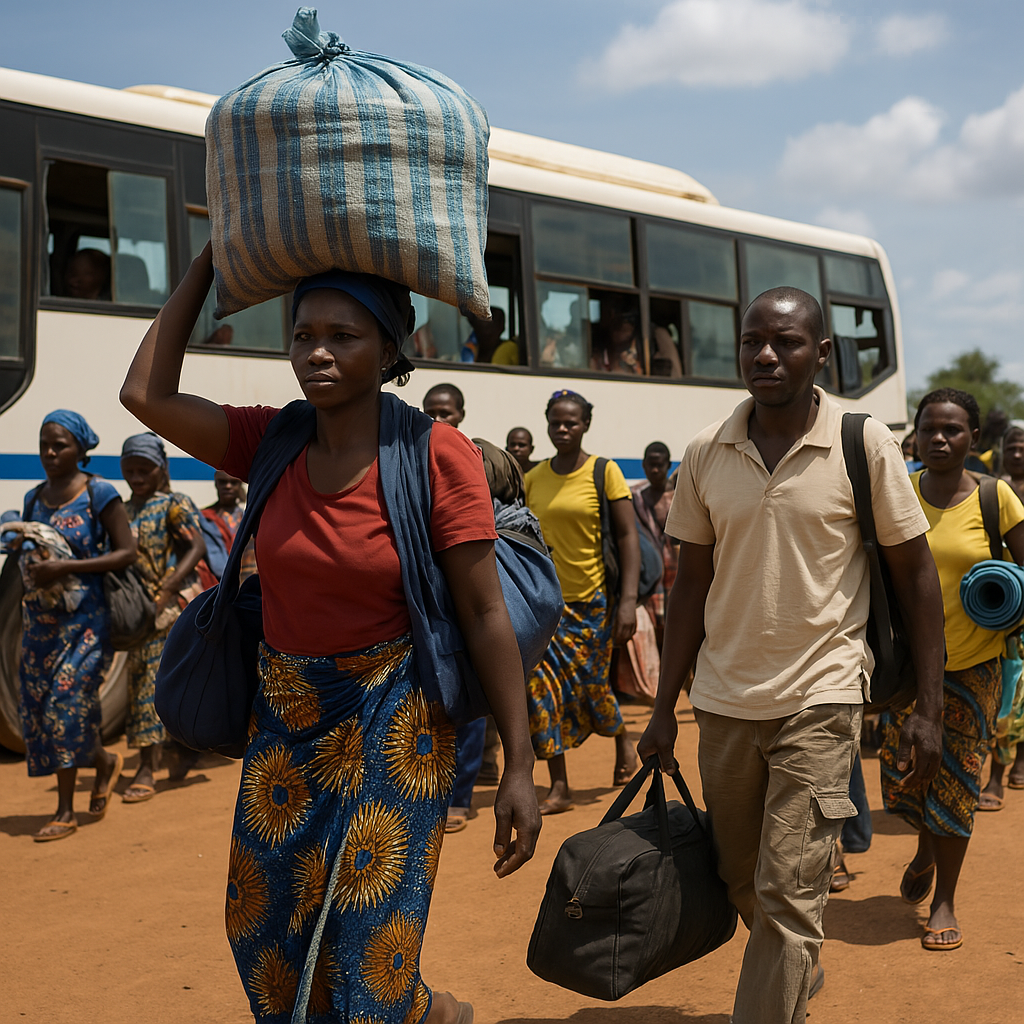Nearly 20,000 Central African Refugees Return Home in 2024 Amid Hopes for Peace and Stability
Thousands of Central Africans Repatriate Voluntarily in Largest Return Since 2017, UNHCR Calls for Continued Global Support to Sustain Progress.

The voluntary return of nearly 20,000 Central African refugees in 2024 has marked a significant milestone for peace and development in the region, according to the UN Refugee Agency (UNHCR). The agency announced that a total of 19,751 refugees made the journey back to the Central African Republic (CAR) over the past year — the highest annual figure since the organized voluntary repatriation programme began in 2017.
These returns, coordinated by UNHCR and supported by host countries, signal renewed confidence in the conditions in CAR and are seen as a beacon of hope for one of Africa’s most complex displacement crises. Refugees primarily returned from Cameroon and the Democratic Republic of the Congo (DRC), which together accounted for 16,265 of this year’s voluntary returns.
The repatriation efforts bring the total number of Central African refugees who have returned home since 2017 to 52,937. This development comes amidst a wider trend across West and Central Africa, where voluntary returns have steadily increased. Over 400,000 refugees have returned to their countries of origin across the region since 2017, including 317,824 to Côte d’Ivoire, 30,581 to Cameroon, and 5,571 to Nigeria.
During a recent mission to the Central African Republic, UNHCR's Assistant High Commissioner for Operations, Raouf Mazou, met with returnees, host communities, and national authorities to assess reintegration efforts. Mazou also welcomed the return of some 151,000 internally displaced people (IDPs) in CAR this year, alongside the refugee returns. He emphasized that while the resilience of returnees is commendable, their long-term reintegration depends heavily on improved security, sustained humanitarian support, and international cooperation.
“Refugees returning home is more than a journey – it is the start of rebuilding lives and communities,” Mazou said. “Their resilience and determination inspire us, but their return and successful reintegration depends on security and our collective commitment. We must ensure that returnees, both refugees and IDPs, and their receiving communities have the support they need to rebuild their futures in safety and dignity, laying the foundation for lasting peace and stability in the Central African Republic and across the region.”
While the increased returns are encouraging, UNHCR warns that the displacement situation remains dire. Approximately 679,000 Central Africans — about 10 percent of the nation’s population — remain refugees in neighboring countries. Cameroon hosts around 238,000 Central African refugees, followed by the DRC with 207,000, Chad with 140,000, and the Republic of Congo with 35,000. Within CAR itself, over 476,000 people remain internally displaced due to continued instability and lack of access to essential services such as healthcare, education, and shelter.
In response to these challenges, the CAR Solutions Support Platform was launched in 2023 to strengthen coordination and resource mobilization at the local, regional, and global levels. This initiative focuses on durable solutions through four key pillars: voluntary repatriation, sustainable reintegration in CAR, socioeconomic inclusion for refugees who choose to remain in host countries, and support for host communities.
With financial and political backing from the European Union, international donors, and private sector partners, UNHCR and its partners are expanding infrastructure, improving access to services, and enhancing livelihood opportunities for returnees. The agency is also calling for strengthened international collaboration to sustain and scale up these programmes.
The importance of long-term, comprehensive support for returnees cannot be overstated. Successful reintegration hinges on access to housing, employment, education, and healthcare. Without it, returnees risk falling back into cycles of vulnerability and displacement. The ultimate goal, according to UNHCR, is not just the safe return of individuals, but the re-establishment of stable, self-sufficient communities that can contribute to the country’s recovery and future prosperity.
As global displacement continues to rise — with over 114 million forcibly displaced people worldwide as of 2023 — the situation in CAR presents a rare and hopeful narrative. Yet it also highlights the immense challenges that remain, and the urgent need for shared responsibility to support those seeking to return home and rebuild.
UNHCR urges the international community to seize this opportunity and invest in long-term peacebuilding, development, and reintegration in CAR and across the broader region. The agency emphasizes that sustained support will not only benefit the returnees and their communities but also strengthen regional stability and offer a model for resolving displacement crises around the world.
- READ MORE ON:
- UN Refugee Agency
- Central African Republic










